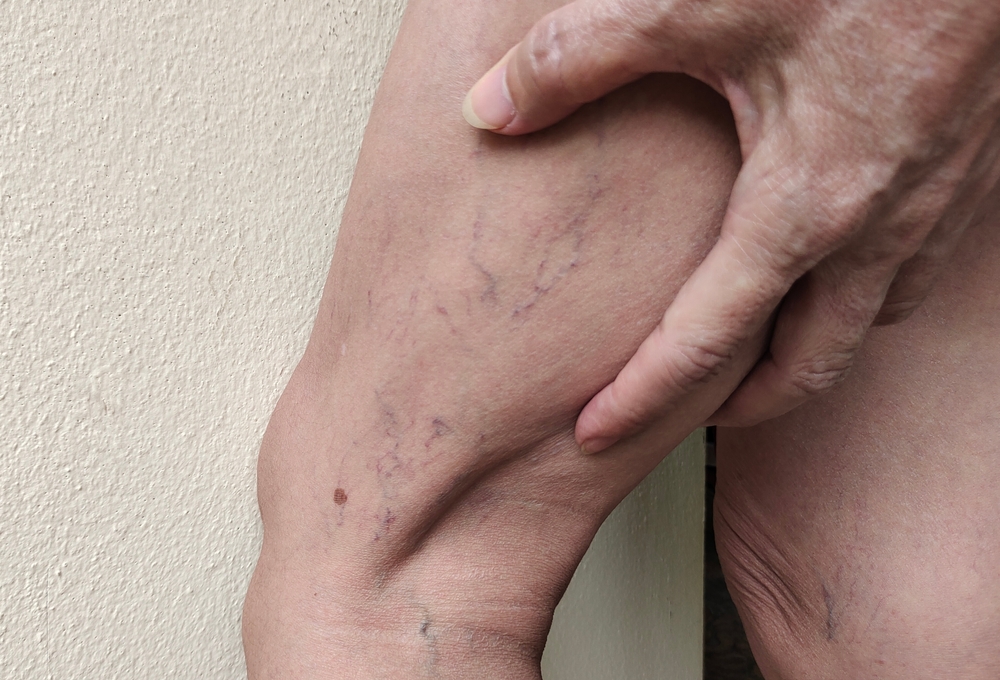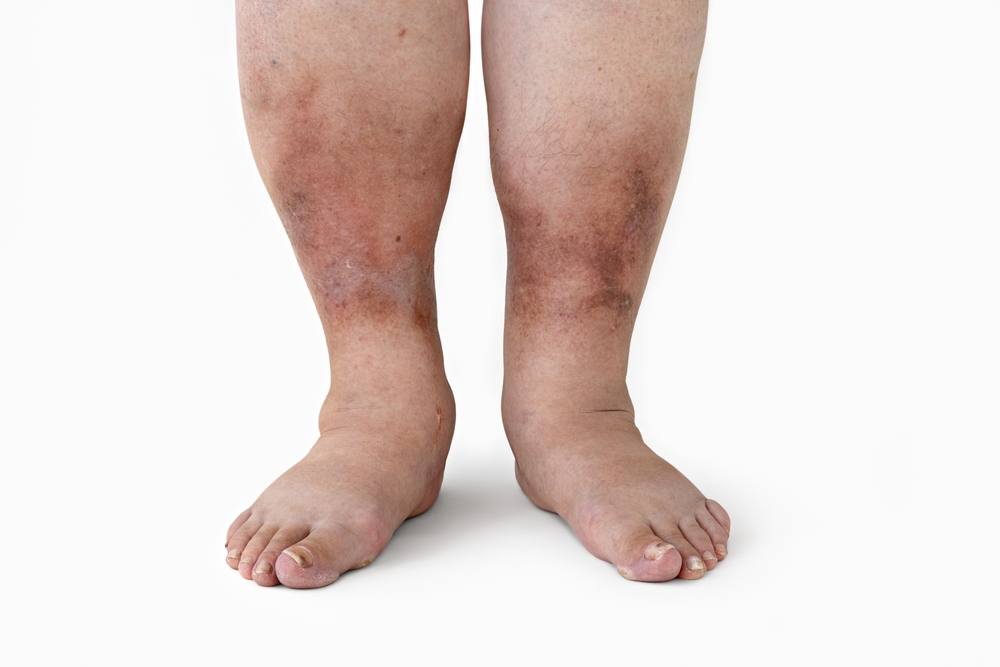Eczema affects millions of people worldwide. Eczema causes red, itchy and scaly patches on the skin. It is a chronic and inflammatory skin condition. Typically, it appears in the folds of the skin or in places like behind the knees. Venous eczema is a lesser-known type of eczema. And, one closely linked to varicose veins.
Do varicose veins contribue to eczema?
Venous eczema is a type of eczema that occurs due to poor blood circulation in the legs and is usually caused by underlying varicose veins.

Ways varicose veins contribute to venous eczema:
- Impaired blood flow: varicose veins can appear when the valves within the veins fail to function properly, leading to blood pooling. This blood increases pressure in the affected veins, slowing down the normal flow of blood back to the heart, and, as a result, this lack of blood flow can cause fluid to leak out into the tissues around them.
- Increased pressure and fluid build up: more pressure within the veins and leaking of fluid can lead to oedema, or swelling, in the lower legs and ankles, and, because of this, build up of fluid redness and itchy skin may then appear in these areas.
- Inflammatory response: fluid in the tissues causes an inflammatory response in the skin, causing redness and itching. Typically, these are characteristics of eczema.
- Compromised skin barrier: varicose veins, and the resulting venous eczema, can compromise the skin’s natural barriers. Excessive fluid, inflammation and constant itching can lead to dryness, flakiness and cracks in the skin. Because these disruptions in the skin barrier make it more susceptible to allergens, irritants and bacteria, eczema symptoms may worsen.
- Chronic inflammation cycle: varicose veins, and the ongoing inflammation from venous eczema, can create a nasty cycle. Inflammation can further damage the vein walls, worsening the varicose veins and increasing eczema symptoms.

While venous eczema can be hard to manage, several treatments can help calm the symptoms and prevent further complications. An ultrasound scan can diagnose varicose veins and make sure the right treatment is given, and, following on from this, VenaSeal and sclerotherapy can treat the varicose veins. This will result in improved blood flow with fewer flare ups in the legs. Compression stockings can help improve blood flow, too, and reduce the possibility of oedema, or swelling, and go on to relieve itching. In addition, moisturisers and other creams can help give the skin more moisture to help prevent dryness and cracking.
Adopting lifestyle changes to manage varicose veins will also help to manage venous eczema and, therefore, improve quality of life. Remember, seeing a health professional is important for the right diagnosis. A treatment plan will be designed to meet your needs.


